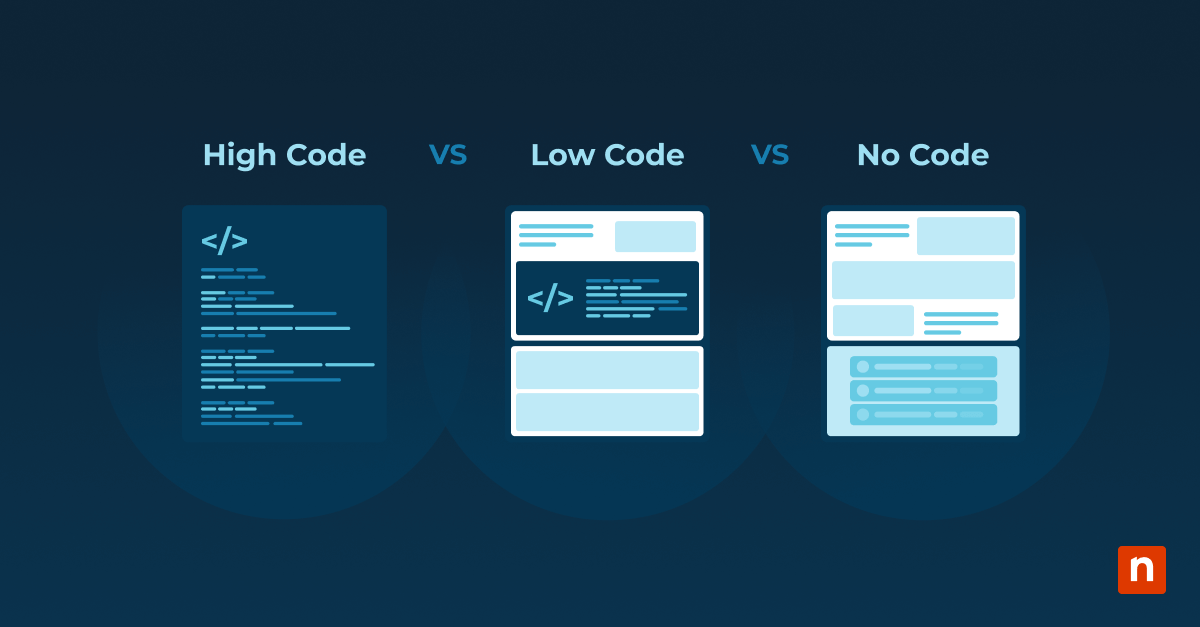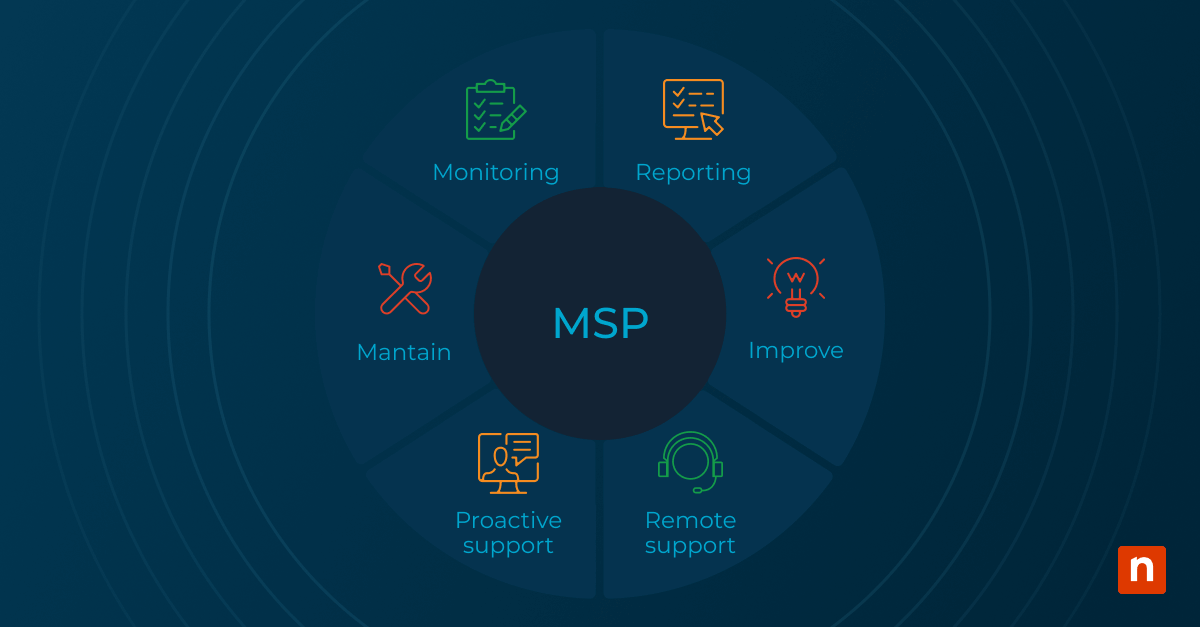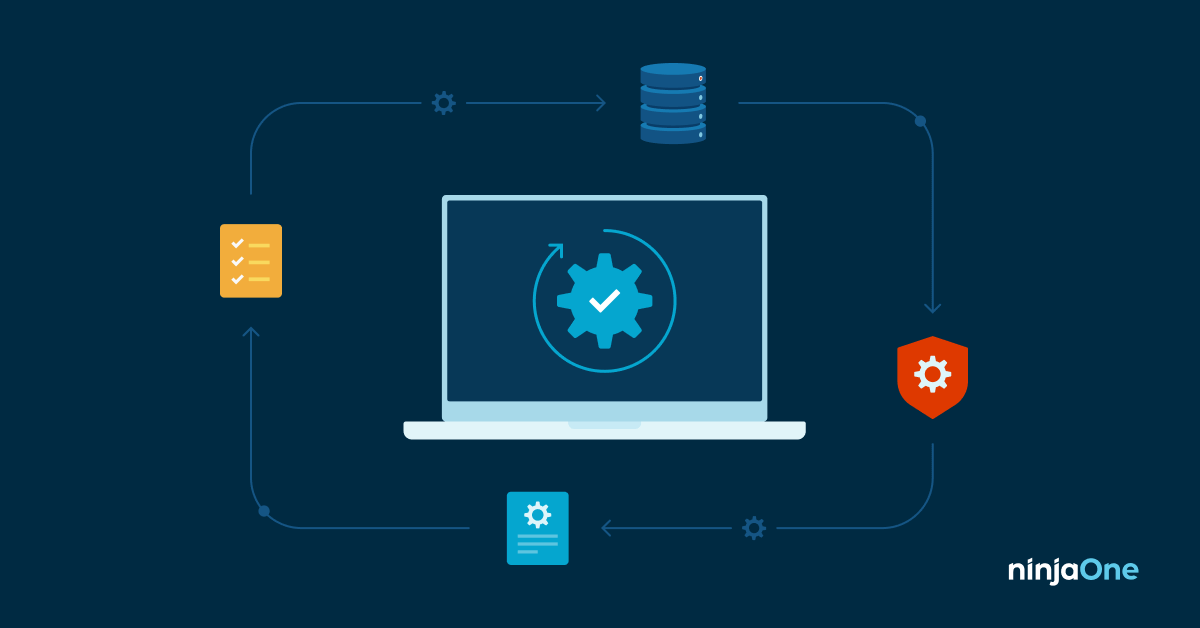What are good MSP growth metrics? Believe it or not, revenue isn’t the be-all, end-all. Find out what factors are even more important.
At some point, every managed services provider has the question cross their mind, “How much is my MSP worth?”
We’ve discussed this topic many times during our NinjaOne MSP Live Chats, and the fact is it’s an important question to consider regardless of your plans for exiting your business.
Even if you’re not planning to sell your MSP, knowing the factors that play into your MSP’s valuation and understanding the metrics that owners and investors use to evaluate and optimize MSP businesses is key. That’s because calibrating your efforts to improve these metrics won’t just result in your business being more valuable to outside investors, it will result in better, smoother operations for you and your employees, as well.
What are the metrics that help determine valuation? Revenue may be the number you see tossed around most often, but it’s far from the be-all, end-all. In fact, as the title suggests, there are other metrics that are even more telling and informative.
In this post:
- Valuable insight from Live Chat guest Chris Ryne (Growth Achievement Partners)
- Common methods of MSP valuation
- Growth metrics that go beyond revenue
The most important valuation metric for MSPs?
As business owners, we know it’s easy to get caught up with discussions over your bottom line. Revenue is often a quick way to judge the status of a business at a glance.
Unfortunately, it’s also a very shallow metric. Once a business crosses the point of “struggling to stay afloat” and becomes profitable, there are dozens of other factors that creep in and become the true measure of its potential and value. As a former MSP owner, I can attest to the many times I was asked about the revenue of my business with no interest in other metrics that I found valuable about my business.
Just think about how many factors contribute to that simple equation of profit-vs-loss. How much of your time is required? How much hands-on management and juggling of clients? How many HR and turnover headaches? These factors spell out the difference between a business with high revenue and a truly successful one.
Example: Would you rather make 10% of $200,000 MRR, or 40% of $75,000 MRR? Not only is the take-home better on the latter option, but there’s a good chance it requires less than half as much time, effort, and resources to earn.
This is a simple example, but it illustrates why revenue alone is not the best determining factor of an MSP’s value.
What are common factors in an MSP appraisal?
If you’ve explored this topic at all, you’re probably familiar with some of the more common numbers used to evaluate an MSP business. These typically include:
- EBITDA (Earnings Before Interest, Taxes, Depreciation, and Amortization): A common profitability proxy that is relatively easy to calculate. Typically, the higher your EBITDA, the higher the multiple your MSP could be valued at.
- Recurring Revenue Rate: A means of evaluating cash flow without having to depend on net-new business.
- Net Profit Margin: Often indicative of a business’ operational maturity, as higher profit margins are usually attributed to better processes and financial management.
- Customer Retention: Trends of customer retention over several years are used to determine the long-term viability and profit potential of the MSP.
These metrics certainly play a key role in evaluating an MSP, but what about the myriad other facets of an MSP operation? How do they play into the overall big picture?
That’s what our guest, Chris Ryne, discussed with our audience during our recent MSP Live Chat. Chris helps MSP owners take command of their situation and ensure wealth beyond income by working smarter not harder. One area he specializes in is guiding MSPs through the strategy and process of M&A and exit planning, but his overarching goal is to maximize the success MSP owners enjoy today, in addition to whenever and however they decide to exit.
What are good MSP growth metrics? 4 additional “intangible” factors.
“There are additional growth categories beyond the revenue that may have even bigger, longer-lasting impacts to quality and profit for MSPs,” says Chris. “Think growing your support team’s productivity and technical capabilities, or growing the automation and scalability of your processes, or growing your QBR deliverable, or growing your vertical market expertise in your local market.”
From my own experience running (and successfully exiting from) an MSP business, I would wholeheartedly agree. Revenue numbers are often the immediate go-to when owners are asked about how business is going, but without additional context, revenue numbers alone don’t paint the full picture, and they certainly aren’t a definitive measure of what is or isn’t a successful business.
Chris’s big piece of advice for smaller MSP owners is that they shouldn’t let seemingly unattainable revenue benchmarks get in the way of them investing in four key areas that may not show up on the balance sheet, but absolutely do add meaningful value to the business.
1) Quality of your team
Human capital is an often-overlooked factor in any business, but it’s critical to both your ongoing success and your valuation. Turnover, talent hunting, and training take time and money. The prospective buyer, they’re extremely off-putting prospects. Someone coming into the MSP business fresh — your buyer — wants to step into a turnkey operation. They can’t be expected to hire a team or replace people without knowing the ropes.
Chris and I discuss the importance of human capital in the clip below:
I can personally attest to the importance of this factor. One of the primary reasons I was able to secure top valuation with my MSP was my human capital. It took real effort, but I had no turnover for the last few years prior to exiting. This was possible because I invested heavily in my team knowing the real value they brought to the business. I paid for certifications and training, gave them nearly unlimited paid time off and incentive pay plans, and gave them the opportunity to make a lot of extra money by putting in extra hours.
2) Quality of your processes & procedures in place
Your processes make up your structural capital and include everything from onboarding processes to scoping and migration.
It’s nearly impossible to optimize a business that isn’t driven by documented processes. Many of the most successful MSPs I’ve encountered make use of proven, structured systems like EOS or Lean Six Sigma. Quite a few others have developed their own internal processes over years of trial and error.
Learning from mistakes is part of the business, but the real powerhouse MSPs turn those lessons into procedures that can be repeated, refined, and easily passed along. And that last part is key when it comes to exiting your business. If a new owner can’t open up the playbook and keep the operation running smoothly, they’re likely to shy away. After all, they’re paying to step into a successful business, not to learn the ropes as they go.
3) Quality of your customer relationships
Simply, this is all about your customers — your customer capital. How do your clients view you and your MSP? Are you thought of as a strategic advisor rather than a break/fix “computer guy”?
An MSP who relates to their clients on that vCIO or more strategic level is intrinsically more valuable because this perception plays so heavily into price perception and retention.
4) Your brand equity
Your positioning in the market is key to your social capital. Are you successfully serving a specific niche? Are you active in the community in your region? Do you have a relatable, unique, and recognizable brand?
If these sound like marketing concepts, it’s because they are — but let’s not forget that marketing isn’t the same as advertising and it’s not just about emails and LinkedIn posts. Marketing is about placing your business in the market in such a way that it’s competitive and profitable. Many MSPs don’t think about this until late in the game, but brand and marketing are always considered heavily when evaluating a business.
Chris discusses the importance of MSP marketing and brand in this clip:
What you personally value as a business owner is just as important
As you can see, there are plenty of ways to invest in your business that don’t directly relate to sales or the balance sheet. I’ll say it again: based on my own experience, the wise MSP will not ignore these Four Capitals.
I say this not just because of profit potential or the chance of a big payday when you sell the company, but because we should all aspire to run the business that we really want to run. Revenue figures don’t take into account things like burnout, stress, or time away from family.
As entrepreneurs, we’re often lured into thinking that everything — including our health and happiness — must be sacrificed in the name of always increasing revenue and maximizing profits, but as Chris Ryne has shown us, that’s not true at all. Ultimately, what is more important is ensuring your MSP provides what is valuable to you in terms of growth and profit and satisfaction. By giving the above factors due consideration, you can turn your MSP into a highly-valued growth machine without unsustainable or unnecessary stress.
Don’t miss our next MSP Live Chat
Recapping our Live Chats is fun, but they’re even better live. Find out when we’re hosting our next one, and be part of the conversation with your peers.









